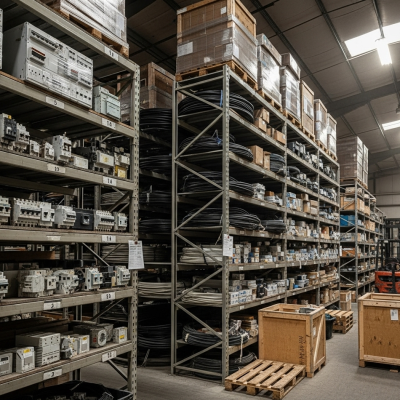
In today's fast-paced business environment, aligning procurement with design and product development cycles is critical for organizations aiming to deliver innovative products on time and within budget.
Lasso procurement software tailored for the healthcare industry addresses the critical needs of sourcing medical supplies, equipment, and services while ensuring compliance, patient safety, and operational efficiency.
Regulatory Compliance:
Embed strict standards (e.g., HIPAA, FDA, Joint Commission) into procurement workflows, ensuring medical supplies, pharmaceuticals, and equipment meet safety and legal requirements. Digital records simplify audits.
Timely Availability of Supplies:
Coordinate procurement of critical items—like PPE, medications, or surgical tools—with patient care schedules, ensuring no shortages disrupt treatments or procedures.
Cost Control:
Monitor spending on high-cost items—like imaging machines, implants, or drugs—against budgets. Analytics identify savings opportunities, such as bulk discounts or generic alternatives, without compromising quality.
Supplier Reliability:
Track vendors for delivery reliability, product quality, and compliance (e.g., sterile goods certification), ensuring a steady supply chain for essential healthcare needs.
Enhanced Traceability:
Maintain detailed records of sourced items—lot numbers, expiration dates, and supplier origins—for rapid recalls or quality assurance, critical for patient safety and regulatory adherence.
Quality Assurance:
Integrate specifications for medical-grade products into orders (e.g., sterilization standards, dosage accuracy), ensuring procured items meet clinical requirements.
Support for Patient Care:
Streamline procurement of specialized items—like prosthetics or diagnostic kits—freeing up healthcare staff to focus on patients rather than administrative delays.
Data Security:
Protect sensitive procurement data—like patient-related purchases or supplier contracts—with robust permissions and encryption, critical in a privacy-focused industry.

Lasso procurement software tailored for the healthcare industry addresses the critical needs of sourcing medical supplies, equipment, and services while ensuring compliance, patient safety, and operational efficiency.
Regulatory Compliance:
Embed strict standards (e.g., HIPAA, FDA, Joint Commission) into procurement workflows, ensuring medical supplies, pharmaceuticals, and equipment meet safety and legal requirements. Digital records simplify audits.
Timely Availability of Supplies:
Coordinate procurement of critical items—like PPE, medications, or surgical tools—with patient care schedules, ensuring no shortages disrupt treatments or procedures.
Cost Control:
Monitor spending on high-cost items—like imaging machines, implants, or drugs—against budgets. Analytics identify savings opportunities, such as bulk discounts or generic alternatives, without compromising quality.
Supplier Reliability:
Track vendors for delivery reliability, product quality, and compliance (e.g., sterile goods certification), ensuring a steady supply chain for essential healthcare needs.
Enhanced Traceability:
Maintain detailed records of sourced items—lot numbers, expiration dates, and supplier origins—for rapid recalls or quality assurance, critical for patient safety and regulatory adherence.
Quality Assurance:
Integrate specifications for medical-grade products into orders (e.g., sterilization standards, dosage accuracy), ensuring procured items meet clinical requirements.
Support for Patient Care:
Streamline procurement of specialized items—like prosthetics or diagnostic kits—freeing up healthcare staff to focus on patients rather than administrative delays.
Data Security:
Protect sensitive procurement data—like patient-related purchases or supplier contracts—with robust permissions and encryption, critical in a privacy-focused industry.

In today's fast-paced business environment, aligning procurement with design and product development cycles is critical for organizations aiming to deliver innovative products on time and within budget.
In today's fast-paced business landscape, procurement is no longer just about securing goods and services at the lowest cost.
Procurement has long been viewed as a tactical function—focused on sourcing goods, negotiating contracts, and ensuring timely delivery at the lowest cost.
In today’s interconnected economy, businesses face the challenge of optimizing their supply chains while minimizing risks.
Developing a category strategy is a critical process for procurement professionals, marketers, and business leaders aiming to optimize their organization's approach to sourcing, product management, or market positioning.
Managing supplier relationships is a critical component of any successful business, but the processes involved—audits, surveys, and documentation—can be time-consuming and complex.
Managing sub-tier suppliers in complex fabrication projects is a critical yet challenging task. These suppliers, often providing specialized components or services, are integral to the success of large-scale projects in industries like aerospace, automotive, or construction.
Effective collaboration between procurement teams and engineering departments is critical for creating robust supplier specifications that drive quality, efficiency, and innovation in the supply chain.
Organizations are increasingly turning to automation and strategic agility to streamline operations, reduce costs, and stay competitive.
Category management is a strategic approach to organizing and optimizing product categories to drive sales, improve customer satisfaction, and enhance operational efficiency.




© 2025 Lasso Supply Chain Software LLC
Get instant access to our report on the Top Procurement Trends of 2025.